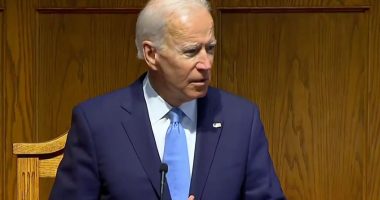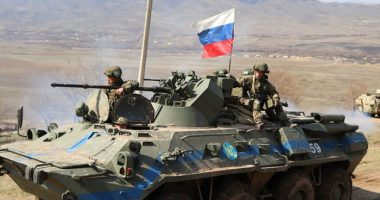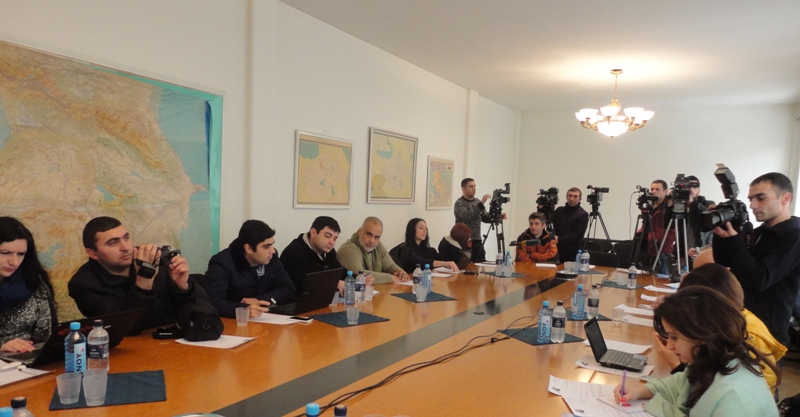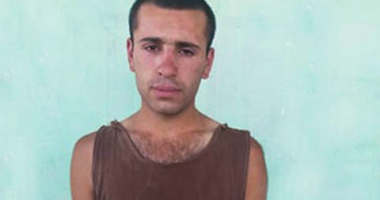YEREVAN — Vote buying was decisive in the ruling Republican Party’s victory in the recent parliamentary elections, Armenia’s leading anti-corruption watchdog claimed on Monday.
In a report on the conduct of the April 2 polls, the Armenian affiliate of Transparency International, the Anti-Corruption Center (ACC), said its members recorded 90 cases of vote bribes during the parliamentary race. Most of them were handed out by the ruling HHK, it said.
Presenting the report, the ACC’s director for programs, Varuzhan Hoktanian, said that other election contenders, notably businessman Gagik Tsarukian’s Bloc and the Armenian Revolutionary Federation (Dashnaktsutyun), also engaged in the illegal practice. “But if we look at the scale [of vote buying,] it was mainly done by the Republican Party,” he told a reporters.
Western observers mostly deployed by the Organization for Security and Cooperation in Europe said although “fundamental freedoms were generally respected” the elections were “tainted by credible information about vote-buying, and pressure on civil servants and employees of private companies.”
In a joint April 3 statement, they did not report significant instances of other violations such as multiple voting or ballot stuffing. The United States and the European Union echoed the findings of the OSCE-led mission, while cautiously praising the overall conduct of the vote.
An HHK spokesman admitted on April 5 that vote bribes were distributed. But he insisted that they did not have a “substantial impact on the election results” that gave a landslide victory to the party headed by President Serzh Sarkisian.
The ACC report also accuses the HHK of illegally using government resources in its election campaign. In particular, it says, government officials and public sector employees worked for HHK campaign offices or participated in campaign events organized by the party during their work hours. Also, employees of schools, kindergartens and even hospitals were pressurized into campaigning for the HHK, according to the report.
The anti-graft watchdog also accused the Tsarukian Bloc and Dashnaktsutyun of abusing their administrative resources in a similar fashion in local communities run by their members.
Hoktanian was very skeptical about several dozen criminal cases that were opened by Armenian law-enforcement agencies in connection with reported election irregularities. “I don’t think that … that will lead to some really serious results,” he said.
Hoktanian also said that the abuses of administrative resources were facilitated by the weakness of Armenia’s opposition forces. “Money plays a very important role in politics,” he said. “I don’t mean to say that they are weak only because of [a lack of] money. But those financial problems do exist.”









